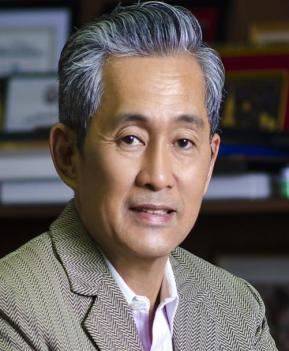TECH4GOOD

The world of work has dramatically transformed in the last two decades. These innovations, changing customer behaviors, the emerging focus on sustainability and especially the explosion of artificial intelligence (AI), are fast changing the landscape, giving birth to many entirely new job titles that were inconceivable just 20 years ago. These “new collar” jobs, distinct from traditional white-collar and blue-collar roles, often necessitate a unique blend of technical expertise, digital fluency, and creative problem-solving.
The commoditization of big data has spawned new job roles. According to an APEC study, over 200,000 data-related job roles must be filled in the Philippines alone. Data scientists are the architects of knowledge in a world overflowing with data. They extract meaning from vast data sets, leveraging statistical analysis, coding, and storytelling abilities. From predicting consumer behavior to identifying market trends, their expertise allows businesses and organizations to make data-driven decisions and gain a competitive edge.
Other emerging job roles include data analysts, who manipulate and analyze data to uncover hidden patterns that may not be immediately obvious and translate them into business insights. Data engineers who make sure that raw data are efficiently collected and managed and convert them into usable information for data scientists and analysts to interpret.
At the forefront of the AI revolution, AI engineers design, develop, maintain, and enhance sophisticated AI algorithms and AI models that are capable of learning by themselves. They deeply understand computer science, machine learning, and data science. They are responsible for creating intelligent systems capable of tasks like facial recognition, natural language processing, and autonomous decision-making.
The World Economic Forum’s 2023 Future of Jobs Report predicts an unprecedented 40 percent growth globally in the number of AI and machine learning specialists by 2027. The surge is expected to create one million new jobs by 2027, marking AI specialists as the largest growing group of any occupation. As AI becomes more integrated into our lives across all sectors, the contribution of AI specialists is vital in shaping the future of technology and its practical applications.
With all the issues related to keeping cyberspace safe for everyone, we see a widening gap between the available cybersecurity professionals and the demand for this highly skilled workforce. As cyber threats become increasingly sophisticated, the need for cybersecurity engineers and information security analysts has skyrocketed. They act as digital guardians, constantly monitoring networks for vulnerabilities, detecting and responding to cyber-attacks, and implementing security measures to safeguard sensitive information.
Social media has become an essential element of our lives today. It has created new jobs many of us did not even imagine some years ago. Social media managers curate content, manage online communities, run targeted advertising campaigns, and analyze audience engagement, ensuring an impactful social media presence. Content creators and influencers, on the other hand, produce videos, blogs, podcasts and engage with audiences, monitor trends and collaborate with brands to promote products.
According to the research firm MarketsAndMarkets, the cloud technology market is expected to become a $832 billion industry by 2028. This presents an excellent opportunity for cloud engineers across the globe including the Philippines to specialize in these technology which is expected to make up the most of the tech workloads.
AI may have overtaken blockchain in terms of popularity these days, but there is no question that blockchain technology will be here to stay. Trust is a critical element of a digital economy, and blockchain can be handy in maintaining it. A blockchain developer/engineer brings together skills and analytical insights in developing and applying the technology.
The digital world is also beginning to open up opportunities for user experience and user interface designers to create seamless digital experiences. They focus on making websites and apps user-friendly and visually appealing.
As environmental concerns take center stage, organizations are increasingly adopting sustainable practices. Sustainability managers are responsible for developing and implementing strategies to reduce environmental impact, promote resource efficiency, and ensure responsible sustainability practices.
Today's dynamic nature of the job market is exemplified by the emergence of these “new collar” jobs. Our current and incoming workforce continuously needs to adapt and develop new skills to remain relevant in the job market.
Our schools still need to be ready to produce these skills. Individuals must embrace continuous learning to adapt to the evolving landscape and position themselves to thrive in this new era of work and contribute meaningfully to the rapidly evolving digital world. ([email protected])
(The author is an executive member of the National Innovation Council, executive director of the Alliance for Technology Innovators for the Nation (ATIN), vice president of the Analytics and AI Association of the Philippines, and UP System Information Technology Foundation.)